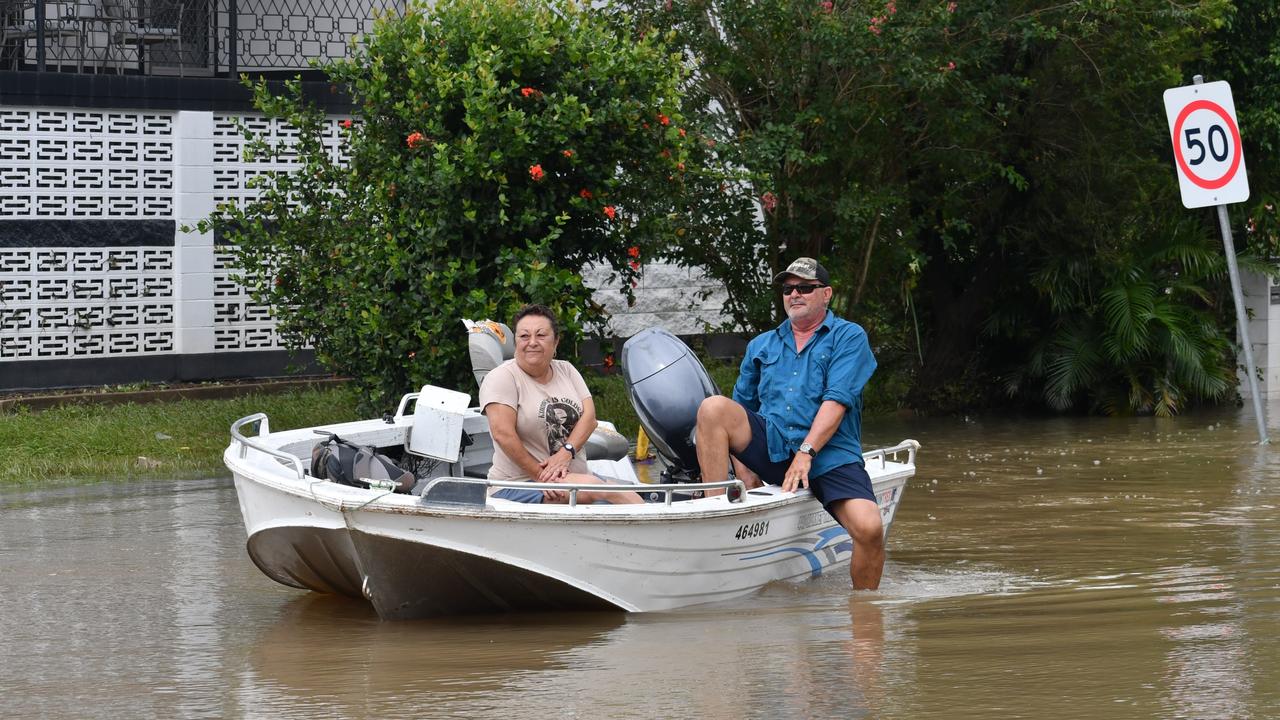Charters Towers vs flying foxes: the war reaches a new battle field
For the first time in living memory there are no flying foxes in the heart of an NQ town. The success comes after the council made a decision to ditch the government.
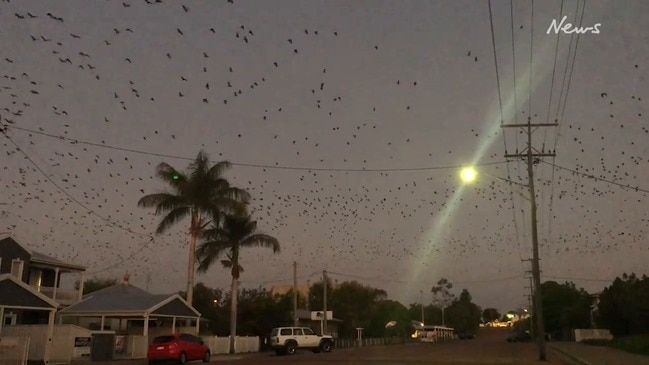
Townsville
Don't miss out on the headlines from Townsville. Followed categories will be added to My News.
The battle against the Charters Towers flying fox population has involved guns, Katters, multiple petitions, lasers, fake snakes, helicopters and pool noodles — but nothing has moved them from the town park.
Until now.
After 21 years, a new method was trialled: less state government involvement, more expert contractors.
Within weeks, the flying foxes were gone from Lissner Park.
Charters Tower Mayor Frank Beveridge said it was the “first time in living history” such a thing had happened.
The flying fox issue is so long running one resident could recall town-organised shootings in the 60s which “thinned them down, but didn’t wipe them out.”
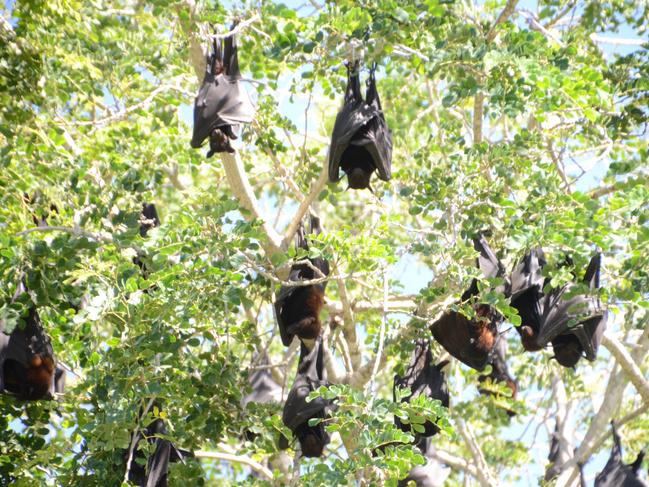
Since about 2001, all relocation attempts have been managed by the Department of Environment and Science (DES) with little success.
In mid-2022, the DES agreed to step back and give the council primary control.
The council briefly voted to relocate the flying foxes themselves before hiring a contractor.
Cr Beveridge said by using a qualified contractor the state government was “a lot less eager to pressure us with legal measures for disturbing the colony.”
Biodiversity Australia is best known for removing Ingham’s notorious flying fox colony in 2020.
Within weeks of signing onto the Charters Towers job, they were making progress.
Dani Plant runs Sisbella Hair and Beauty, on the corner between Lissner Park and Columba Catholic College.
“I’ve been here 11 years and they’ve been here that whole time,” Mrs Plant said.
“The smell was awful and the constant screeching was terrible. You could hear them from inside the rooms during the day and the smell came in when it rained. Until you’ve smelled them, you don’t know what it’s like.”
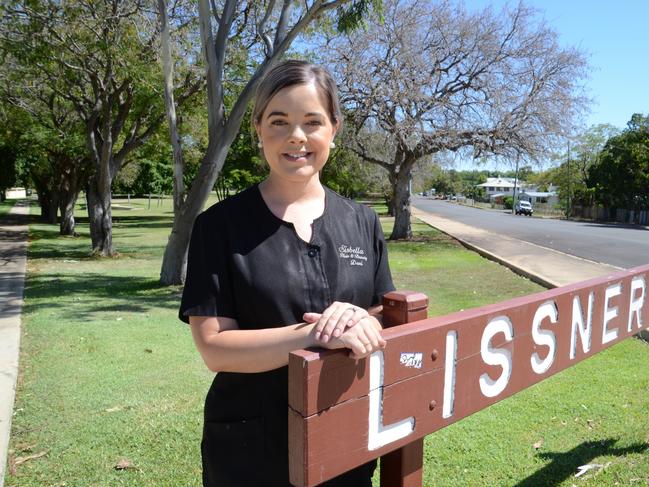
Since the Biodiversity Australia removal in early October, Mrs Plant said it’s been quiet.
The flying foxes are gone from her workplace, but they haven’t left her life entirely.
Most of the flying foxes headed out of town but a splinter group of expectant mothers touched down early.
They gathered in a clump of trees on Holliman Street, one kilometre from Lissner Park, right above a paddock Mrs Plant uses to board three ponies.
“We had to find somewhere last minute, and the people who own this new place are doing us a big favour by taking the ponies in,” she said.
Due to the presence of newborns, the Holliman Street group won’t be moved until early January.
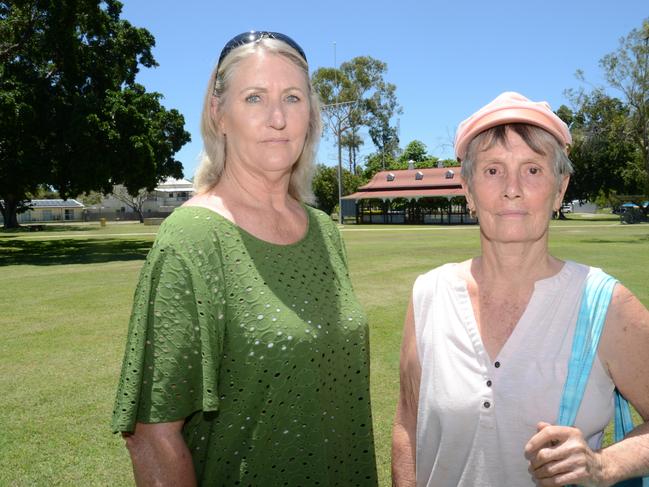
Residents like Snow Hearne and Lynndal Glenwright aren’t happy about the situation.
“We know flying foxes are giving birth at this time of year. Why didn’t they move them sooner?” Ms Hearne asked.
Both have been closely following the flying fox issue and are sceptical about the decade-long debacle.
“Now people say it’s wonderful they’re gone from Lissner Park, but they will be coming back,” Ms Glenwright said.
“Don’t treat us like mushrooms. We want to know how much this costed and what’s going on. I want transparency and I’m not getting it.”
The council remains tight-lipped on the money spent.
Before stepping back from the project, the DES spent $665,659 creating a flying fox roost at Young’s Block, a 22 hectare council-owned site.
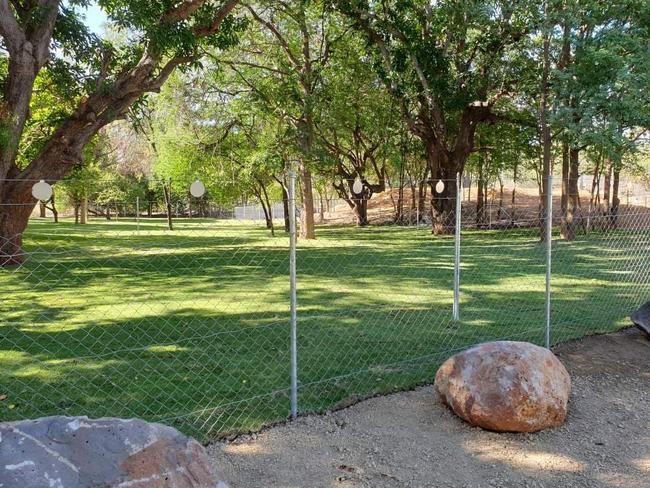
After the construction $249,648 in state funds remained for the council to conduct dispersal work.
When asked why October was chosen as the right time to move the colony, Cr Beveridge said flying foxes tended to build up in town over October and November as they waited for the heavy rains to start.
“And that is the challenge. You can’t move them when there is none there. You’ve got to have a large enough group that when they go up, they draw each other together and go away as one,” he said.
The larger the disturbed colony, the more likely they will established a new roost – ideally at Young’s Block.
Traeger MP Robbie Katter found the successful removal bittersweet.
“I’m not going to say I’m happy. I would’ve been happy if it happened 10 or 20 years ago,” Mr Katter said.
“I still feel remorse for the residents who had their lives ruined, like the Park Hotel. I recall a resident who was in palliative care and he spent the last days of his life locked inside his home because of the smell and the screeching outside.”
Mr Katter said a contractor should’ve been brought in long ago, but the state government was always pushing for more consultation and monitoring.
“The DES prioritised the rights of the flying foxes over the community,” he said.
The next challenge for the community will be making sure the flying foxes don’t come back.
Already, there are plans to hire two full-time ‘flying fox rangers’ at council who’ll shadow the colony for two years.
Originally published as Charters Towers vs flying foxes: the war reaches a new battle field




